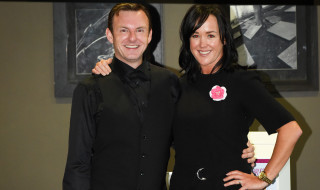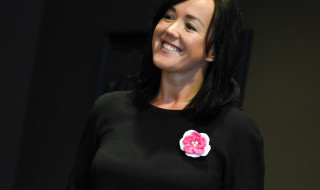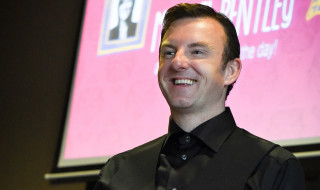
Sophie Bracken caught the Maidstone leg of Practice Plan’s 2015 Workshop Tour.
There are many practice management courses and events available for dental professionals looking to hone their business skills and learn new practice growth techniques, but finding a course that is relevant to every member of the practice can be tough.
Enter the Practice Plan Workshop Tour 2015: ‘How to create your ultimate dental practice, room by room’. Working on the brief of helping delegates create a vision for their ultimate dental practice that gets every member of the team involved, this engaging, high-energy tour is a must for each practice team member in equal measure.
Nationwide tour
The 12-date nationwide tour kicked off in Bristol in September and runs the length of the country, taking in locations including Edinburgh, Nottingham and Manchester, and finishing up in London in December. I attended the third leg in Maidstone, Kent, to find out exactly what you can expect from future workshop stops.
The tour’s energetic hosts, Laura Horton and Michael Bentley, who both have extensive knowledge and experience of both the dental practice and business management, led delegates on a tour through the ultimate dental practice, room by room, beginning at the entrance and finishing up in the management office. Laura, who set up her own dental consultancy business, Horton Consulting, in 2008, explained the goal of the workshop: ‘We want to give delegates many ideas to push their businesses through for the future and provide lots of “light bulb moments” to take home’.
Each session of the one-day workshop focused on a different room in a typical practice, highlighting ways to implement systems and new ideas to create the ultimate dental business – to grow your practice and to provide the best possible experience for patients.
A different entrance
Laura and Michael began with the practice entrance, referring to patients’ first awareness of, and contact with the surgery, rather than the physical reception area, which the duo covered later.
Laura and Michael ran through several of the potential ‘entrances’ that exist for patients to reach you. These include your website, email responses, online booking, social media, phone calls, business-to-business partnerships and referrals, as well as some less widely used portals such as live web chat.
The pair stressed the importance of emotionally connecting with customers and promoting loyalty through consistent branding in these different patient entrances. The pair also said that the most successful brands with loyal customers are brands that evoke feelings, connect emotionally and know their client base.

First impressions
After a refreshment break, Laura and Michael turned their attention to the front desk area. ‘The front desk provides the first and last impression of the practice’, Michael reminded us, and highlighted that brand continuity is vital in this area.
Michael asked delegates to think of what images the word ‘receptionist’ conjured up in their minds, and after the attendees agreed that the image of receptionists was less than positive, Michael suggested using titles such as ‘front desk professional’ or ‘patient care executive’ for front desk staff to embrace instead.
Front desk team members are arguably the most important members of the practice when it comes to building relationships with patients, Michael said, and encouraged the team to chat with patients and to enhance their experience with simple gestures such as complimentary tea and coffee, children’s books and free Wi-Fi.
The patient lounge session made front desk delegates feel involved and valued in the workshop, and gave dental professionals in attendance valuable insight into the myriad of tasks and responsibilities faced by front desk staff, allowing DCPs to appreciate aspects of the business they may not usually see.
Reading your patients
Moving on to the consultation room, Laura and Michael encouraged practice members to implement ‘DISC’ profiling on all new patients, which essentially categorises them into one of the following personality types: dominant, influential, steady or conscientious. Using this profiling system gives practitioners a clearer idea of the best ways to communicate with patients, depending on their personality type.
Laura encouraged the use of a treatment coordinator (TCO) for free consultations, as well as initial consultations on the day of the new patient assessment, as a cost effective method of discovering new patients’ oral history and supporting the dentist when they develop a potential treatment plan.
Laura also highlighted the benefit of knowing the DISC profile of patients when discussing potential objections to treatment. TCOs are good, Laura said, at discovering the patient’s true objection; often patients are more comfortable discussing objections with TCOs than with the dentist.
Building a relationship
In the last session before lunch, Laura and Michael discussed the ultimate dental room. In the ultimate dental practice, the dentist collects each patient from the patient lounge, and takes him or her back to the front desk after an appointment; this aids in building that important patient-practice relationship, the pair said.
Michael was keen for dental nurses to also build relationships with patients by introducing themselves and explaining procedures to the patient in lay terms.
Turning their attentions to the dentist, Laura and Michael believe that a structured day is vital for dentists to achieve their potential. ‘Diary zoning is the key to making sure there is structure to every single day’, said Michael. Diary zoning can include scheduling longer, more complex procedures such as endo in the morning, meaning that fewer patients are scheduled and the front desk team can answer more phone queries.

Utilising your hygienist’s skills
After a buffet lunch, the ultimate hygienist room was next on Laura and Michael’s list. Acknowledging that many hygienists work in more than one practice, the hosts urged principals to integrate hygienists into their practices, so that they can share the business’ brand values, adopt its message, and promote preferred product recommendations.
‘Your hygienist is underutilised; they are the gum health expert in your practice’, Laura said. As such, she believes a 20-minute slot for the ultimate hygienist appointment is insufficient. Laura recommended one-hour appointments for a new patient’s first visit, and recalling patients for a second visit if the hygienist does not have sufficient time in the first appointment. It is important they are not just removing hard plaque, but also educating patients on managing their own oral health.
Achieving the vision
Beginning the practice manager’s office session, Laura listed no less than 21 duties (at least) that practice managers are responsible for, but she stated that the job is largely a reactive, ‘troubleshooting’ role. In the ultimate dental practice, managers should focus efforts on growing the business and reaching the ultimate practice vision, she said. Michael suggested delegating routine managerial duties to other team members, allowing the practice manager to work on growing the business.
Laura also encouraged practice managers to master the art of delegation: ‘Delegation is the key to success in your business’, she informed the delegates, as not only does it free the practice manager’s time to work on business growth, but it implies trust in team members, which itself is a great motivation booster.
The ultimate practice tour
The day ended with the Horton Hangout question and answer session. Laura and Michael were fantastic, energetic hosts that guided the delegates through a tour of the ultimate practice, and provided several ‘light bulb moments’ for the team to take away and implement straight away. One practice manager delegate told me: ‘I can’t wait to get back to work and start delegating!’
Laura and Michael provided attendees with a wealth of business savvy and cost-effective growth ideas specific to the dental practice. If delegates decide to implement just one or two ideas from the Practice Plan Workshop Tour, they will be on the road to growing their business into the ultimate dental practice – room by room.
The Practice Plan Workshop Tour is free to attend for Practice Plan members with over five patients on plan, and Practice Plan is also throwing the doors open to nonmembers too, with tickets costing just £100. Places are being snapped up fast, so if you’d like to secure your ticket, simply visit www.practiceplan.co.uk/events or call 01691 684135.


